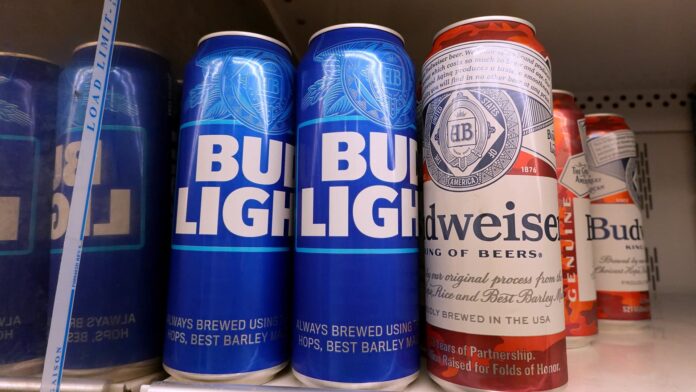The beer industry should prove resilient through looming supply chain challenges that look set to impact some markets, the chief executive of Budweiser owner AB InBev said Friday.
Beer has a “characteristic as a category that is incredible, which is beer is local,” Michel Doukeris told CNBC’s Arabile Gumede.
AB InBev is the world’s biggest brewing firm, and owns brands including Beck’s and Stella Artois.
“We source our ingredients locally, sometimes we grow our ingredients locally, from barley, hops … sometimes the bottles, the cans, [are] local as well. Beer usually does not travel a lot because we have breweries in the local communities where we operate,” Doukeris said.
Volatility has erupted in the Red Sea region, which provides access to the Suez Canal, the quickest trade route between Asia and Europe. Yemen-based Houthi militants have launched a spate of attacks on vessels, while tensions escalated late Thursday as the U.S. and U.K. launched strikes against Houthi targets.
Shipping companies are avoiding the waterway, diverting instead around the southern coast of Africa, which is increasing transit times by several weeks and taking capacity out of global supply chains.
Various companies, including Sweden’s Ikea, have said they expect product delays and an impact on business. Consumers also face higher prices as freight rates rise.
The CEO of Danish shipping giant Maersk warned Thursday that the disruption may impact global growth, and said it was unclear whether it would last days, weeks or months.
“We keep alert to disruptions caused by things like the Suez Canal because they impact other elements of the supply chain. But for the beer production, the advantage of it being … sourced locally, produced locally and sold and distributed locally, isolates a bit these effects,” Doukeris said.
“This is how we’ve been navigating the last three, four years with Covid and everything else that happened after that,” he added.
Doukeris was speaking as AB InBev announced a partnership with the Olympics set to run across the Paris 2024 summer games, Milan 2026 winter games, and Los Angeles 2028 summer games.
The company has seen a mixed run of quarters, with revenue climbing but volumes falling, particularly in Europe and the U.S.
Disclosure: CNBC parent NBCUniversal owns NBC Sports and NBC Olympics. NBC Olympics is the U.S. broadcast rights holder to all Summer and Winter Games through 2032.


